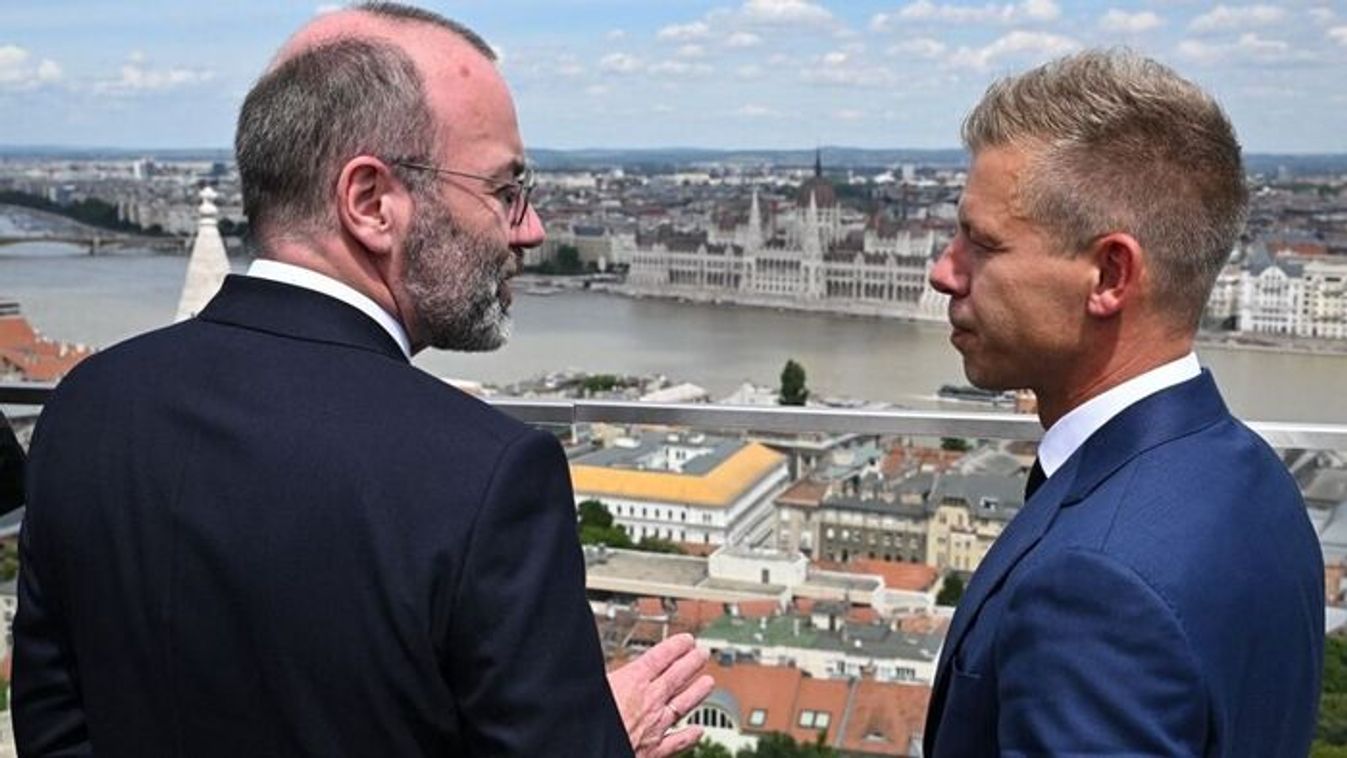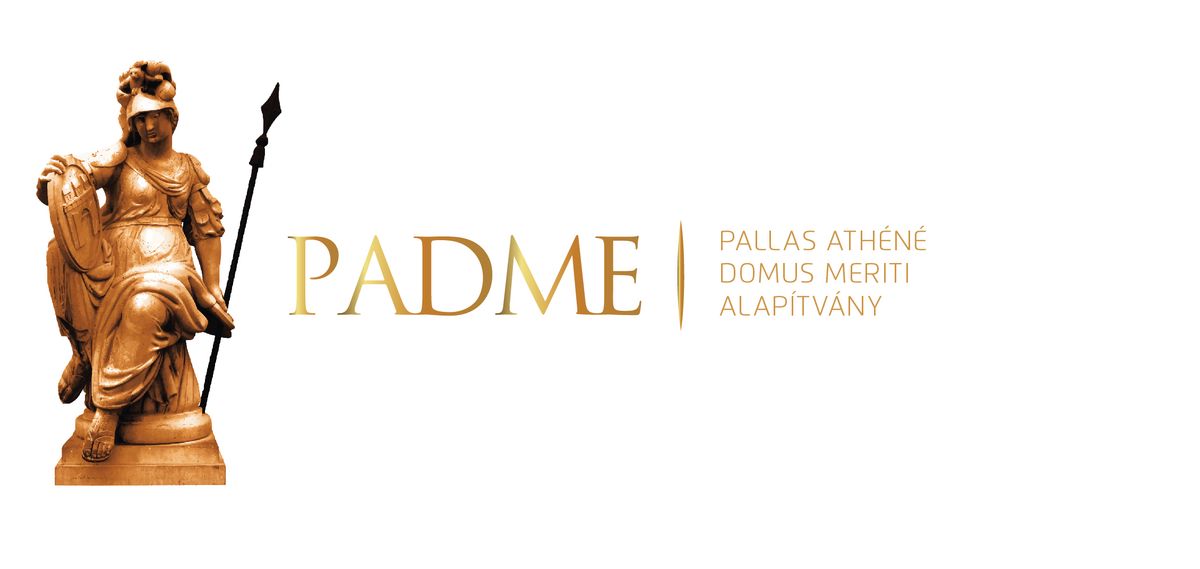Ez is napvilágot látott: Magyar Péter tudhatta, milyen bosszút forralnak Magyarország ellen

A szakértő szerint közölték a Tisza Párt elnökével, mi a feltétele a hivatalban maradásának.

"It is important to talk through how to visualize the preservation of a certain Christian identity in Europe and America, while retaining religious liberty for everyone" – Gerard Bradley, professor of law at the University of Notre Dame pointed out in a conversation with Lénárd Sándor, researcher at the National University of Public Service in Budapest.

Gerard BRADLEY is professor of law at the University of Notre Dame, where he teaches Legal Ethics and Constitutional Law. At Notre Dame he directs (with John Finnis) the Natural Law Institute and co-edits The American Journal of Jurisprudence, an international forum for legal philosophy. Bradley has been a visiting fellow at the Hoover Institution of Stanford University, and a senior fellow of the Witherspoon Institute, in Princeton, N.J.

You were the editor of a collection of essays titled, Challenges to Religious Liberty in the Twenty-First Century. Freedom of religion has not only been at the forefront of recent Supreme Court cases, but also, as Justice Samuel Alito recently explained; the emergency measures taken in the face of the pandemic have given rise to serious anomalies regarding the free exercise of religion. What, in your view, are the most burning challenges to religious liberty in the 21st century in America?
The most recent decision of the Supreme Court on government-mandated church closures is portentous, and welcome. This case is from New York State. The Court decided late in the evening of November 25 -- just hours before our Thanksgiving holiday – to stop enforcement of Governor Cuomo’s limitations on the sizes of church and synagogue gatherings. The key metric in this and other mandated-closure cases is the comparison between attendance limits on religious assemblies, compared to limits imposed in other public spaces, such as malls, casinos, markets, businesses. In New York and elsewhere, the comparison has been unfavorable towards religion; that is, casinos and malls have been treated more favorably than have churches and synagogues. The Court has now said, albeit at a preliminary stage of litigation, that this won’t do. This resolute parity (if you will) among different kinds of assemblies is welcome. The Court’s refusal in this case to defer to whatever governors or mayors say on the subject, is a new development, even in light of decisions in the summer of 2020. Of course, Ruth Bader Ginsburg then sat. Now, the presence of Justice Amy Barrett, my former colleague at Notre Dame for eighteen years, signals better things to come for religious liberty.
The Everson v. Board of Education Supreme Court ruling in 1947 marked the beginning of a considerable centralization regarding the free exercise of religion. In this decision, the Court incorporated and applied the religious clauses of the Constitution against the States. How did it affect the right to freely exercise one’s religious belief?
There are two parts to the answer to this question; combined they dealt religious liberty a serious blow. First, by “incorporating” the Establishment Clause of the First Amendment in Everson, the Court gave itself the final say about the relationship between religion and public life in every one of the fifty states. Before 1947, state judiciaries and legislatures were largely free to do as they pleased on that subject. Second,
Everson settled that the Court would use its new power to secularize American public life.
Religious liberty has suffered greatly since, for if religion itself is not considered a great public common good – and is instead privatized, as by the Everson Court – then religious liberty is going to be reduced. And has been.
What role, in your view, does religion as a public common good play in a society?
It means basically two things. Or maybe I should day that here I shall mention just the two most important things that it means.
One is that saying religion is a common is to say at once that it is a public value, not just private amenity. Saying this means that
religion is good for society, and even including all those many persons in any given society who are not personally religious.
One could say that education and health are great common public goods, worthy of communal support even for and by persons who have neglected their own education and health and who may even, in some sense, not really value either education or health. So, too, one could say that religion is something that is good and worthy of communal support even by those who are not religious.
The second basic thing is that any society which holds religion as a common good is committed, I think, to holding that there is a greater-than-human-source-of-meaning and value in human affairs. Even in a society with no established church or hegemonic religion, this commitment makes an enormous difference downstream, as the people and public authority go about the business of governing that society.
The Claremont Institute launched a project that aims to address the uniqueness of the American way of life. What, in your view, could be considered as integral parts of the American way of life? What role does religious belief and the expression of this religious conviction play in this unique way of life?
Right now, America is poised, so to speak, between adhesion to the privatization project initiated by Everson, but not carried through in earnest by the Court until starting in the 1960s, and something of a return to the original understanding of our founders, which was the American tradition until the sixties.
In that longstanding way of organizing our common life, government recognized the unique and great value of religion, both to the success of republican institutions like ours, and also to the genuine flourishing of persons.
Because religion was so valuable, government in this tradition would promote and encourage religion, for the sake of all. Because religion is good only when it is supposed that freedom is a prerequisite for persons to affirm, and then practice, their beliefs in a truly valuable way. In fact, government mostly promotes religion by promoting religious liberty. Even so, government could, and regularly did, creatively partner with religious institutions throughout American history, on educational and charitable projects serving the common good. So long as these partnerships do not coerce anyone’s religion, and are on offer without discrimination among the religions, they should be encouraged. They surely do not violate the First Amendment. We shall soon see which way the Supreme Court with three Trump appointees tries to lead the country.
Taking a step back, it can be observed that even there has been an explosion of human rights in terms of international treaties and apparatus; we have been experiencing an erosion of religious freedom around the world. This is due to both the rise of religious extremism and regular and increasingly militant secular attacks especially in the West that aims to drive religion to the margins and out of the public discourse. Why, in your view, can we experience this contradiction?
It is paradoxical at first glance that, just when asserted human rights are proliferating in various schools of thought and political practice, support for religious liberty is waning. No doubt this apparent anomaly owes much to the bad reputation that the extremism of some adherents gives to religion itself. Yet, many of those who multiply human rights while short-changing religious liberty are quick to exonerate Islam and most Muslims, to cite one example, from blame for the terrorism of a few Muslims. So, these human rights enthusiasts are ready and willing to be careful and discriminating when they want to be. I think that secularism rather more fully explains this evident paradox. But it is something specific about secularism or, to be more exact, a specific sort of secularism, namely, that religion has become for many believers and in the minds of many non-believers just one possible way in which each person can choose to define himself or herself. Religion is no longer, in other words, about how the cosmos, including what is invisible, truly is. It is no longer about a transcendent source of meaning and value. It is rather an optional component of some persons’ “identities”. It is about one’s spiritual brand, not the truth about the way things are. There is an epochal difference between these two ways of viewing religion. Which way one goes on this determines much of what one will think of the meaning and value of religious liberty.
What is the purpose and function of religious liberty as it is recognized in the Universal Declaration of Human Rights? How can a fair balance be struck between right to exercise religion and the separation of church and state?
I cannot say with confidence very much about what the drafters of the Declaration were consciously hoping to accomplish. On that historical question about different persons’ intentions, I know enough to say, however, that
the idea was certainly not to secularize public life or to privatize religion.
The main ideas seem to have been to recognize the truth, and establish it in positive law, that religious freedom is, first, essential to the true enjoyment and value of religion in the lives of persons, and second, to install religious liberty as a foundational element of a whole system of civil liberties. These aspirations (or claims, I suppose) are true. Here I think that the Universal Declaration and the intentions of those who gave it life are reflected faithfully in the opening pages of Dignitatis humanae, the Vatican Council’s Declaration on Religious Freedom: “It is in accordance with their dignity as persons-that is, beings endowed with reason and free will and therefore privileged to bear personal responsibility-that all men should be at once impelled by nature and also bound by a moral obligation to seek the truth, especially religious truth. They are also bound to adhere to the truth, once it is known, and to order their whole lives in accord with the demands of truth. However, men cannot discharge these obligations in a manner in keeping with their own nature unless they enjoy immunity from external coercion as well as psychological freedom”. I would also point out that both Pope Saint John Paul and Pope Emeritus Benedict stressed in their papal writings how a genuine religious liberty was strategically central to any functioning system of civil liberties.
They said that religious liberty was the keystone in the arch of freedom.
They were right.
We entered the Advent period while we are approaching to Christmas when Christians are celebrating the birth of Jesus Christ. This is a period of preparation for the celebration of the Nativity of Christ at Christmas. This is especially a symbolic period in the European and American culture since Christianity play an integral role in both cultures. How, in your view, the nurture of the unique European and American ways of life might help preserve this legacy along with principle of religious liberty?
Many people would say that this is the question. I would rather say that it is important to talk through how to visualize the preservation of a certain Christian identity in Europe and America, while retaining religious liberty for everyone. I would rather say that mainly because I think it is not so much the “question” so many people think it is. Much less do I think it a question doomed to receive only inadequate answers. On the contrary: I think that
Christian identity is entirely compatible with religious liberty for all because religious freedom is encoded in the DNA of Christianity.
I provided some of the evidence for thinking so in replies to earlier questions. To those considerations I would add one more observation. It is that, as far as I can see, a great deal of the expressed worry about preserving a Christian identity for Europe or for America has nothing whatsoever to do with diminished religious liberty. Some people say that. But I think that when you get past the opening remarks of these people, and probe more deeply what they are really worried about, you often discover that what they want is secularism, and the reason they want it, rather than any Christianized view of the common good, is to preserve sexual and other lifestyle freedoms. Put differently, they are afraid of the morality of the Bible, not the specifically religious content of it.
***
A cikk a Pallas Athéné Domeus Educationis Alapítvány támogatásával valósult meg.
